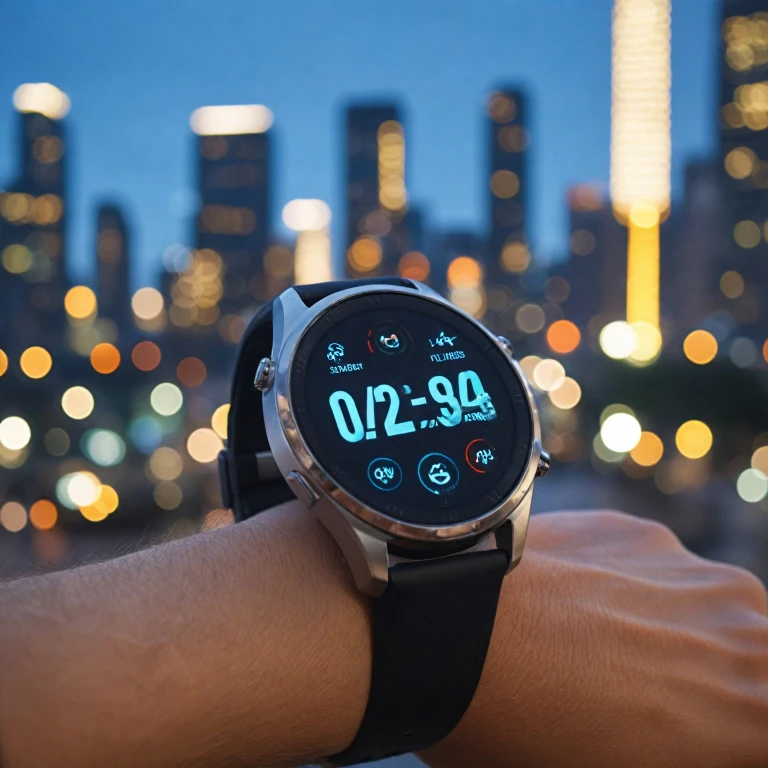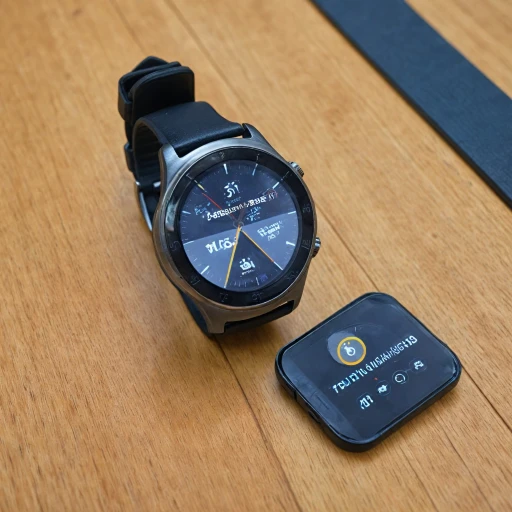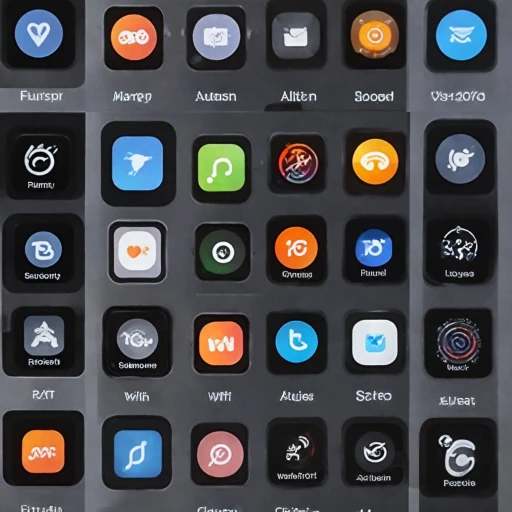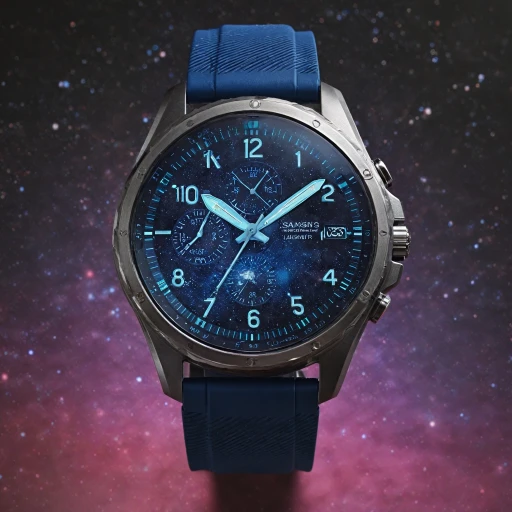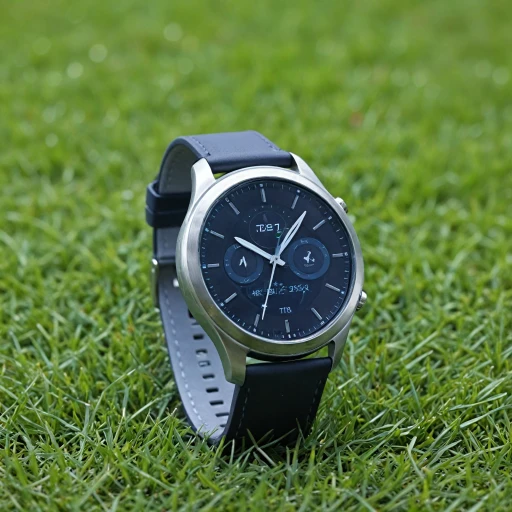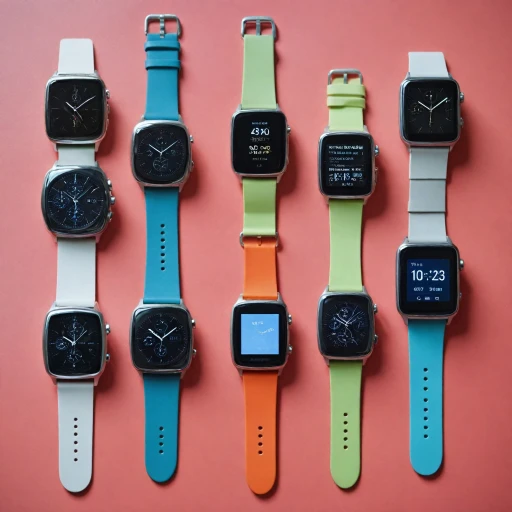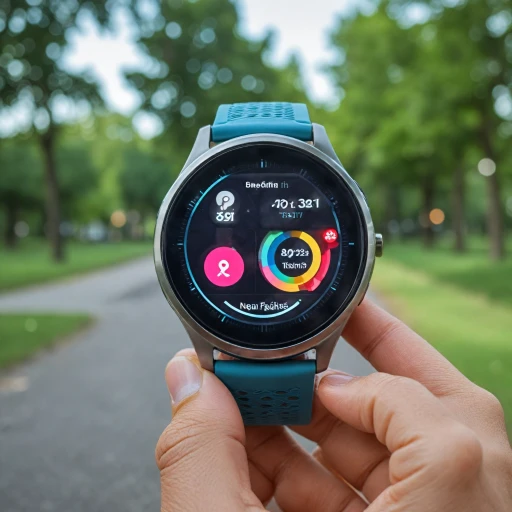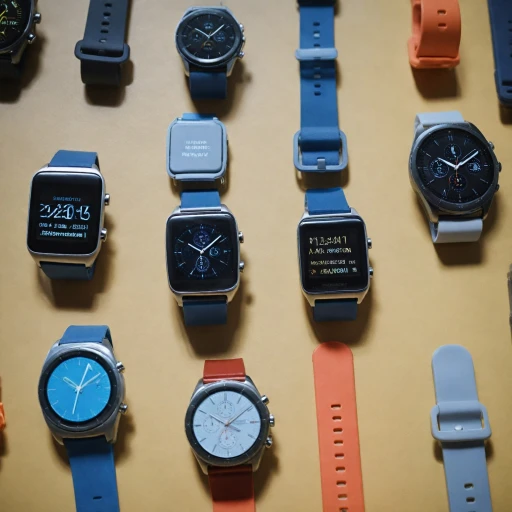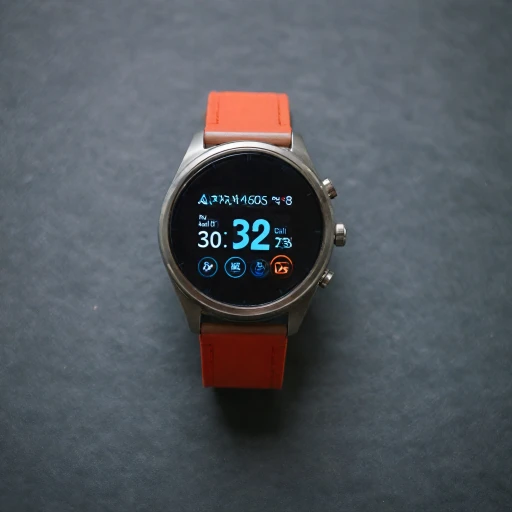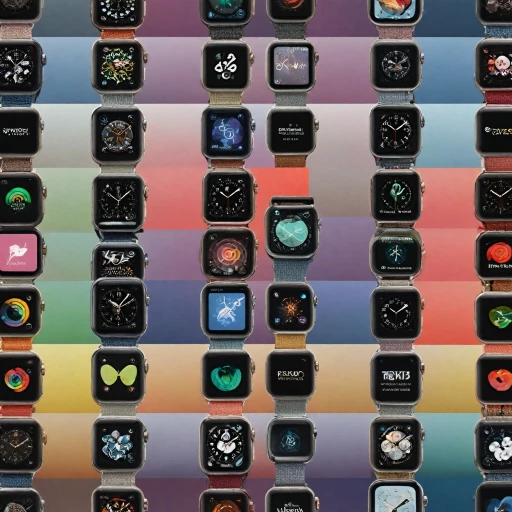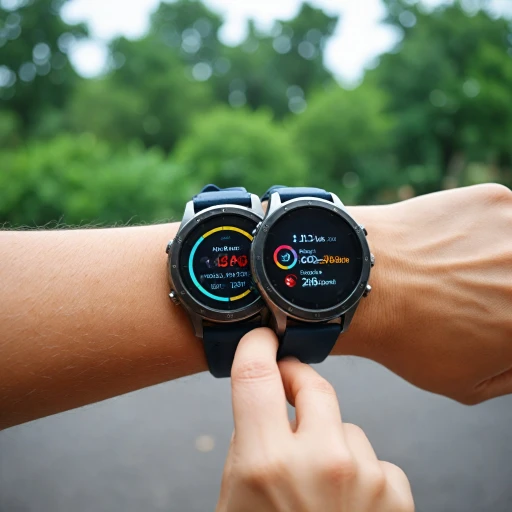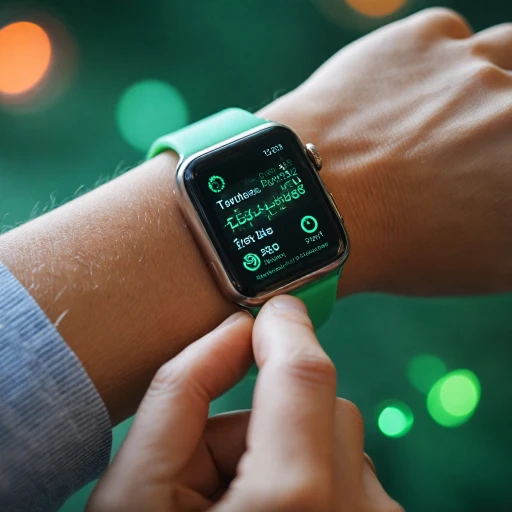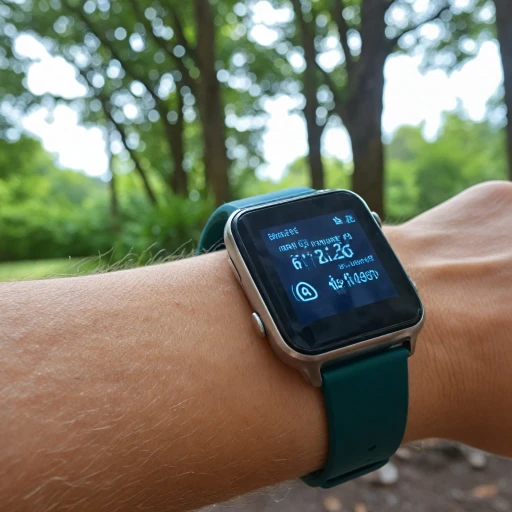
Anticipated Release Timeline
Looking Forward to New Horizons
As the anticipation builds among tech enthusiasts and smartwatch fans alike, the question of when the Samsung Galaxy Watch 7 will hit the shelves is on many minds. Historically, Samsung tends to reveal their new products around the late summer to early fall timeline, often aligning with their Galaxy smartphone launches. This trend, observed in recent years, implies we might expect the next installment of the Galaxy Watch series possibly by late August or early September next year.
Last year's Galaxy Watch 6 saw a release in conjunction with the new series of Samsung smartphones, highlighting how they synergize wearables with phones for seamless operation. The industry speculations suggest that the upcoming Samsung Galaxy Watch might also launch alongside a fresh lineup of Galaxy Buds or other accessories.
Apart from the release date predictions, ongoing updates suggest the manufacturer's subtle hint towards improved battery life and cutting-edge health sensor integrations, likely building upon the predecessor’s features that emphasized heart rate monitoring and sleep apnea detection. For an in-depth exploration of Samsung's roadmap and progress, visiting this comprehensive analysis could provide more insights.
Potential Features and Upgrades
Potential Innovations in the Next Galaxy Watch
The eagerly awaited Samsung Watch 7 is likely to bring several exciting features that could redefine the boundaries of wearable technology. As previous models, including the Samsung Watch Ultra and Watch Galaxy, set the benchmark in the industry, the forthcoming iteration promises to offer even more in terms of functionality and usability.- Advanced Sensor Technology: Samsung has consistently pushed the envelope with its sensor capabilities. The next model may include improved bioactive sensors, capable of providing accurate tracking of health metrics such as heart rate and sleep apnea detection. These sensors align seamlessly with the Samsung Health platform, which has been a critical tool for users focusing on fitness and health monitoring.
- Enhanced Battery Life: While battery life has been a focal point for all smartwatch makers, the new Samsung Watch 7 is expected to offer extended usage time. Previous models have shown prowess in providing lasting battery life, yet the demand for even better performance continues, especially among LTE model users who require more energy for connectivity.
- Sleek Design with Resilient Materials: The potential use of sapphire crystal in the watch face could provide better scratch resistance, maintaining the aesthetic appeal of the watch while also enhancing durability. A well-crafted design is not just about looks; it's about ensuring the device withstands the rigors of daily use.
- Comprehensive Health and Fitness Tracking: Emphasis will be placed on body composition analysis and sleep tracking, with the possibility of expanded features for detecting more advanced physiological metrics. This continues Samsung's tradition of making devices that not only connect with Android phones but also serve as comprehensive health monitoring tools.
- Seamless Integration with Samsung Ecosystem: The watch's ability to sync with other Samsung devices like Galaxy Buds and Galaxy smartphones enhances user experience. Users can expect a high degree of functionality when it comes to managing calls, notifications, and even some health applications.
Comparison with Previous Models
Evaluating the Differences from Previous Samsung Galaxy Watches
When delving into the evolution of the Samsung Galaxy Watch lineup, it is intriguing to explore how each new iteration builds upon the last, enhancing both technology and user experience. The Galaxy Watch 7 is expected to continue this trend, potentially offering distinguishing characteristics from its predecessors. One of the major distinguishing elements of each new Samsung Watch release typically centers around upgraded sensors. The Galaxy Watch 7 may feature an advanced bioactive sensor known for its dual capabilities in heart rate monitoring and fitness tracking. This could provide users with more precise health insights compared to the previous models which already boast impressive tracking capabilities. Battery life is often a significant factor for smartwatch users, and many anticipate that Galaxy Watch 7 will improve upon the already commendable battery life of older models, offering longer usage time on a single charge. Enhanced power efficiency could be a distinct selling point, particularly when considering the watch’s potential new features that require more energy. Moreover, in response to increasing consumer demand, Samsung may introduce additional sleep tracking capabilities—potentially including innovative metrics like sleep apnea detection. Improved Samsung Health integration could also provide users a more comprehensive overview of their well-being, complementing existing features that monitor fitness and heart rate. Durability and style are crucial, too. Incorporating materials such as sapphire crystal, akin to the premium Watch Ultra series, might enhance the screen’s resilience against scratches and cracks. This enhancement could serve the Galaxy Watch 7 as both a fashionable accessory and a robust gadget. In filling the gap between galaxy-centric benefits and broad Android wear compatibility, the Samsung Galaxy Watch 7 might also make strides in LTE connectivity. This would allow more independent functionality from a galaxy smartphone, pushing the boundaries of what past models have achieved. Finally, comparing with other top competitors, such as the Apple Watch Series, it will be interesting to evaluate where the Samsung Galaxy Watch 7 stands. Exploring the features of the Apple Watch X could help delineate competitive edges and areas for potential Samsung improvements, considering market trends and user feedback. With each new launch, Samsung strives to deliver a blend of aesthetics and phenomenal tech advancements, and the Galaxy Watch 7 is expected to be no exception, likely offering advancements that its predecessors laid the groundwork for.Market Competition
Standing Out in the Competitive Smartwatch Market
In the realm of smartwatches, the Samsung Watch 7 is set to enter a market that is rich with competition, featuring prominent figures like the Apple Watch and the array of Android-compatible devices. Apple Watch, with its seamless integration with iPhones and comprehensive health monitoring capabilities, has long dominated the premium smartwatch sector. Samsung, however, has carved a niche in offering robust alternatives for users seeking flexibility and compatibility across various devices, especially for those in the Android ecosystem.
Among the standout competitors, Samsung faces brands like Fitbit, Garmin, and newer entries that prioritize fitness and health features such as sleep tracking, heart rate monitoring, and body composition analysis. Samsung’s Galaxy Watch series has been praised for its advanced health sensors, including the bioactive sensor, which competes strongly with these alternative offerings.
What gives Samsung an edge is its ability to offer a comprehensive smartwatch experience that integrates with other Samsung devices, such as the Galaxy Buds and Galaxy smartphones, providing a cohesive ecosystem. The Samsung Health platform offers users detailed insights into sleep patterns, fitness tracking, and overall health metrics, further solidifying its reputation among health-focused consumers.
Battery life is another battleground where Samsung competes fiercely. With each iteration, improvements in energy efficiency and battery longevity are areas that users pay close attention to. Striking a balance between performance features like LTE connectivity and energy conservation is critical for winning over consumers who crave an all-day wear experience without constant charging.
Adding to the allure, the upcoming Samsung Watch 7 is expected to bring enhancements in durability, possibly featuring premium materials such as sapphire crystal for extended protection. While the specific details of features remain under wraps, these anticipated improvements are essential for differentiating the wearable from others in its class.
The market dynamics are further complicated by the introduction of the Samsung Galaxy Watch Ultra and the Watch Classic, pushing the boundaries of what consumers expect in terms of traditional styling versus modern innovation. By striking a balance between these styles, Samsung aims to cater to a broader spectrum of smartwatch users, ensuring that each model serves a specific need, whether it be style, functionality, or innovation.
Consumer Expectations
Anticipated Anticipations from Consumers
Smartwatch enthusiasts eagerly await the release of the next Samsung Galaxy Watch series, with expectations centered on various enhancements and new functionalities that could elevate the user's experience. Consumers are particularly interested in how the new model will compare with existing options, like the Apple Watch and the series' previous iterations.- Health and Fitness Features: Users hope for improved health tracking capabilities, leveraging the advanced bioactive sensor technology to provide insights on heart rate, sleep apnea detection, and detailed body composition metrics. Samsung Health integration remains a much-anticipated feature for seamless data analysis and performance tracking.
- Connectivity and Battery Life: The demand for better LTE functionality and extended battery life persists. Users look forward to a smartwatch that operates more independently from the smartphone, offering robust phone-like features with improved energy scores.
- Design and Durability: Potential updates in the design, possibly incorporating materials like sapphire crystal for improved scratch resistance, also capture consumer interest. The aesthetic appeal of the Samsung Galaxy line is a key component in its favor compared to other smartwatches on the market.

